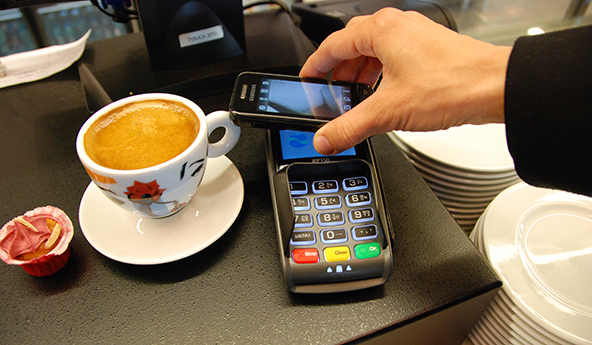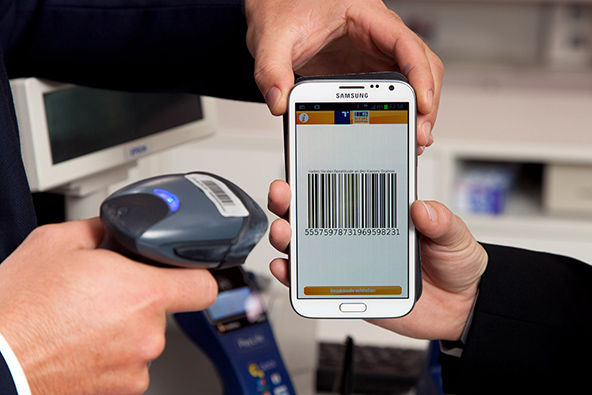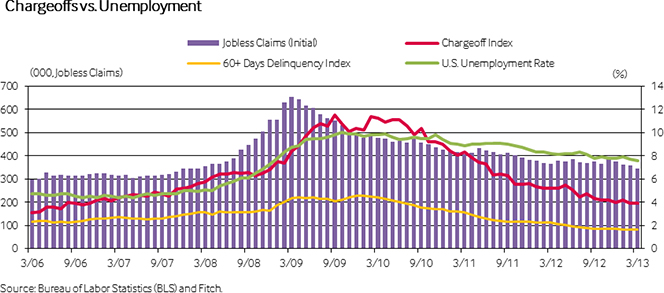How New Technologies Are Helping, not Killing, Credit Card Companies

That is the argument put forth by the Economist in an excellent brief on how the credit card heavyweights are coping with new technological developments and a host of stiff challenges from Silicon Valley start-ups, software giants, telecoms behemoths and others eager to carve a niche for themselves in the new payments landscape and get a piece of the action in the process. My only gripe is that the Economist’s interest in the subject has been attracted by the highly-publicized official launch of V.me — Visa’s mobile wallet. I think that there have been quite a few important developments in recent months that would have merited closer examination and an evaluation of the state of the industry, but that is by the by.
Still, this is a topic that I’ve been meaning to touch on for quite some time and the Economist is giving me the perfect opportunity to do so. There are two interrelated points in particular that I’ve wanted to make and which are both emphasized in the Economist’s piece. The first one is that most major new payments technologies are built around the acceptance of some form of a payment card or other. As a result of that — and that’s my second point — these new developments benefit the established card networks just as much as they benefit the new payment service providers themselves. The rumors of the credit card’s death have indeed been greatly exaggerated.
Payments Cards and New Technologies
The Economist reminds us that most new payments technologies facilitate card transactions:
Smartphone apps often require users to enter their card details to pay for services. Firms such as Square and PayPal have developed tiny card readers that plug into smartphones and allow small traders using their software to accept payments cheaply.
So, naturally, all major card networks have been heavily investing in such technologies and the firms developing them. As the author points out, Visa has invested in Square, which is the biggest mobile payments success so far.
Moreover, as we have often pointed out, building a new payments system from the ground up is a daunting task, even for deep-pocketed companies and the Economist uses my favorite example to agree with me:
So far few have tried to create new payments systems from scratch. Those that have toyed with the idea, such as ISIS, a consortium of telecoms companies in America, have concluded it is far too costly and painful to deal with regulators, set up anti-fraud systems and so forth. (Last year all four big US card networks joined ISIS.) Fears about the security of new-fangled payment systems also play into the hands of established card firms.
I am still at a loss to fully comprehend just how the highly-paid Isis management could have been so ill-prepared for the task at hand — they wanted to build nothing less than a full-fledged Visa-like payment structure — but the point is that it is incredibly difficult to push Visa, MasterCard and the other card networks out of the electronic payments picture — new-age or otherwise.
How to Benefit from the New Order?
Now, the Economist does make the valid point that, whereas Visa and MasterCard may be here to stay, they are far from invulnerable:
Bryan Keane, an analyst at Deutsche Bank, points out that rival digital wallets could promote alternatives to credit and debit cards, including stored-value cards and direct bank-account-to-bank-account payments. Big retailers in America have clubbed together to create their own digital wallet and are likely to prompt users to choose the payment options that are cheapest for the chains, by offering them incentives like coupons.
Well, new payment processors may well try hard to drive consumers away from using payment cards, but the attraction of plastic should not be underestimated. Quite aside from offering an easy access to credit and being so convenient to use, credit cards have been giving users various forms of rewards for many years and some of these are quite generous. And therein lies a difficult question the retailers in the Economist’s example are faced with: would it be more beneficial for them to run their own rewards programs in the form of coupons or other discounts or to keep them outsourced to the card issuers? The premium paid for the acceptance of rewards cards, as compared to regular credit cards, can be as low as 10 – 15 basis points or as high as 40 – 45 basis points of the sales amount, but this is tiny when compared to a merchant discount that is sure to be at least several percentage points of that amount. On the other hand, a merchant would much rather be fostering customer loyalty toward its own brand than toward a credit card company. But how much would it be willing to pay for it?
The Takeaway
At least for now, the card networks are benefiting from the new payments technologies in a huge way and nothing illustrates that fact more clearly than Square’s success. The Economist:
Firms such as Square and PayPal have developed tiny card readers that plug into smartphones and allow small traders using their software to accept payments cheaply. Ed McLaughlin, who oversees emerging payments technologies at MasterCard, reckons such developments have added 1.2m new businesses over the past 12 months to the card firms’ list of merchants.
1.2 million new merchants in one year! That must have set some kind of a record. And I just don’t see how this trend can be reversed. It is true that the picture is rather different in, and payment cards are largely missing from, developing countries, but Visa’s acquisition of Fundamo shows that even these markets are not beyond the reach of the traditional players. Moreover, the Chinese experience clearly shows that credit card penetration is not slow to follow economic development.
Image credit: HLundgaard / Wikimedia.



Good points, credit card companies, especially those with deep pockets are well placed to take advantage of the new technologies. Once a technology is proved to be a winner, others will adopt it as well.
Yes, the credit card companies are good at adapting, alright; but then they have all the money they need to be able to dabble in whatever new technologies they may come across.